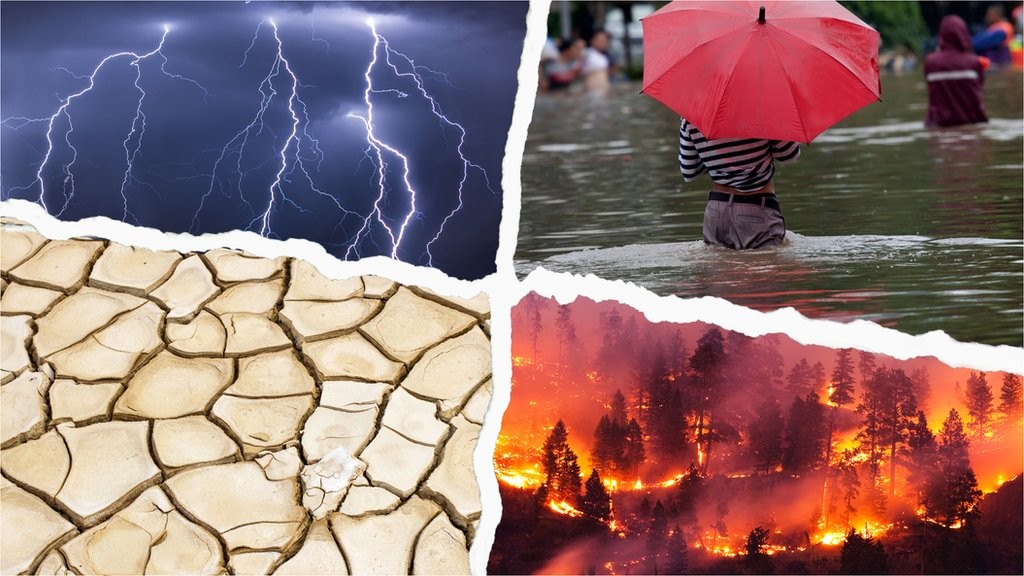Warming up to climate change: How does climate change impact extreme weather events?

- 19 Feb 2024
Why is it in the News?
Extreme weather is becoming more frequent and more intense in many places around the world because of climate change.
How Does Climate Change Impact Extreme Weather Events?
- The Earth's average temperature has gone up by at least 1.1 degrees Celsius since 1850, mostly because of human activities like burning fossil fuels and deforestation.
- This temperature rise has led to more frequent and stronger extreme weather events worldwide, such as heatwaves, droughts, floods, hurricanes, and wildfires.
- It's hard to directly blame one single weather event on climate change because there are many factors involved.
- However, studies can tell us if climate change made a particular event worse or more likely to happen.
- For example, after a deadly heatwave in Western Europe in 2019, a study found that climate change made that heatwave five times more likely to occur.
- In India, heatwaves have become longer because of global warming, and they're expected to get even worse in the future.
- Climate models predict that by the 2040s, heatwaves might become 12 times more common.
- Higher temperatures also make droughts worse.
- In East Africa, for instance, a severe drought happened between 2020 and 2022, leading to famine and displacing millions of people.
- A report found that climate change made droughts like this at least 100 times more likely in that region.
- Warmer temperatures also contribute to wildfires by drying out land and making it easier for fires to start and spread.
- In Canada, for example, a study showed that climate change doubled the chances of extreme fire conditions.
- This was particularly concerning because Canada recently faced its worst wildfire season ever.
- As temperatures rise, the air can hold more moisture, leading to heavier rainfall and more flooding during storms.
- Warm air can also dry out the soil, making droughts worse. But when warm, moist air meets cooler air, it can lead to more intense storms and flooding.
- There's also evidence that climate change is making hurricanes stronger and more frequent.
- Warmer oceans provide more energy for hurricanes to form and intensify.
- The oceans have absorbed a lot of the extra heat from greenhouse gases, making them warmer.
- This, in turn, leads to stronger storms and more damage when they hit land.
- So, while climate change doesn't directly cause any single weather event, it's making extreme weather events more common and more severe, putting people and ecosystems at risk.
